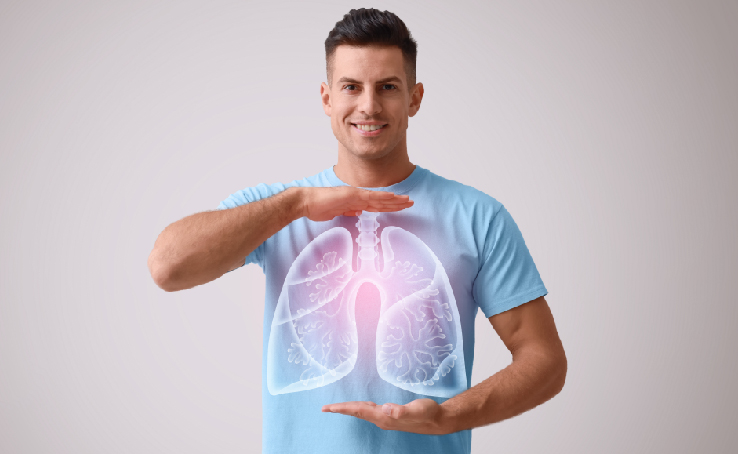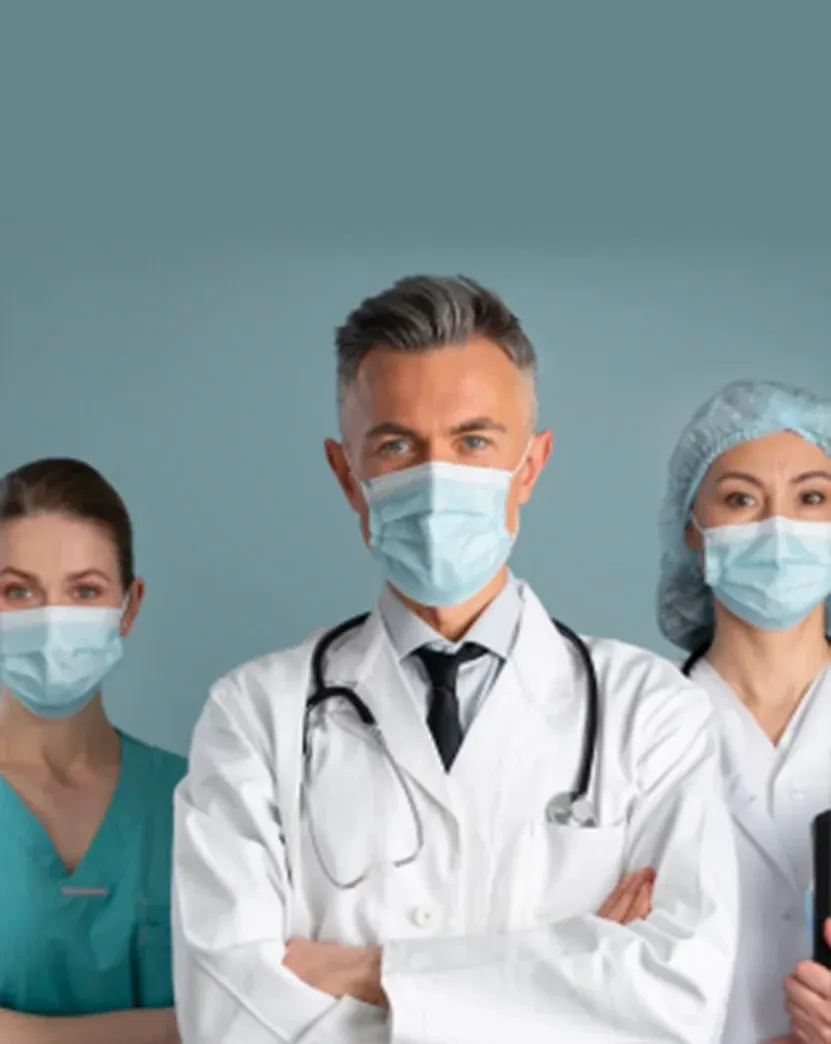Avg Price: $ 35000-$ 85000


Treatment Time
Recovery Time
Hospitalization Days
Success Rate
With over 50,000 successful procedures conducted globally, lung transplant (LT) has emerged as the gold standard in caring for patients with end-stage chronic respiratory failure. LT brings about remarkable enhancements in pulmonary function and significantly elevates the quality of life related to health. The survival rates following LT have consistently and steadily improved with time.The scope for this transplant surgery is expanding, showing improved post-surgery survival rates, even for lungs affected by COVID, when patients are carefully selected. In India, the adoption of broader criteria for lung donation, along with efficient coordination of the transplantation process by both government and non-governmental bodies, and a notable rise in organ donations, have significantly bolstered the country's lung transplant program.
India is actively striving to improve recipient selection processes to achieve more positive outcomes. At the same time, there are ongoing developments in strategies aimed at expanding the donor pool. While awaiting transplantation, individuals are encouraged to concentrate on improving their muscle health, addressing weight-related issues, and ensuring their vaccination records are up to date. Emphasizing the importance of strong patient cooperation, better follow-up care is advocated, with more focus on regular communication with the transplant center, all contributing to an overall enhancement of these aspects. Because of highly intricate nature of this surgery, there is a significant requirement for a high level of procedural expertise and sophistication. India stands out on the global stage for its exceptional proficiency among surgeons in conducting such procedures, owing to their remarkable skills and access to advanced healthcare facilities. Presently, India witnesses approximately 100-120 lung transplant procedures performed each year, distributed among the 4-5 prominent centers that offer this service. Therefore, people from around the world currently have excellent opportunities to avail services from best doctors for lung transplant and best hospitals for lung transplant in India.
A Lung Transplant is a surgical intervention performed to substitute a damaged or failing lung with a healthy one, typically sourced from a deceased donor. This procedure is typically considered for individuals who have previously attempted medications or alternative therapies without achieving significant improvement in their conditions.
Depending on the individual's medical status, the transplant may entail the replacement of either one lung or both lungs. In certain cases, the transplantation of lungs may occur simultaneously with a donor heart.
While a lung transplant is a major surgical procedure associated with several potential complications, it has the potential to substantially enhance both your health and overall quality of life. When you are with the decision of undergoing the transplant, it is essential to familiarize yourself with the whole process, the surgical procedure itself, potential risks involved, and the necessary post-operative care.
Why is Lung Transplant needed?
Unhealthy or impaired lungs can hinder your bodys ability to obtain the necessary oxygen for survival. In many instances, lung damage can be managed through medication or specialized respiratory devices. However, when these interventions are no longer effective or when your lung function reaches a critical, life-threatening stage, your healthcare provider may recommend either a single-lung transplant or a double-lung transplant. In certain cases, individuals with severe heart and lung conditions may necessitate a combined Heart-Lung Transplant.
The primary causes that necessitate Lung Transplant are:
Take Charge of Your Health
Book a Free Consultation

There are three primary categories of Lung Transplantation:
Prior to undergoing a Lung Transplant, you will undergo a comprehensive pre-transplant assessment, which serves as the initial step in determining the suitability of your treatment. This assessment may include:
Upon confirmation by your healthcare providers that you meet the criteria for a lung transplant, you will be placed on a national lung transplant waiting list. However, the considerable number of individuals awaiting lung transplants, your placement on the waiting list may extend for several months or even years. To be matched with a suitable donor, the following factors must align:
Your Health is Our Priority
Book a Free Consultation
During Lung Transplant, you may expect following:
A Lung Transplant carries several potential risks, which encompass:

After the Lung Transplant procedure, you may expect following:
Avail the Expert Health Advice
Book a Free Consultation
After your Lung Transplant, you will typically need to make enduring adjustments, including:
A Lung Transplant brings about significant improvements in your overall quality of life. Following facts exhibit how successful this procedure is for lung patients:
The cost of Lung Transplant in India are quite affordable than many Western nations, while still maintaining world-class quality. The approximate price of this procedure in India ranges from ₹12,31,841 - ₹27,43,075 ($15,458 to $34,422).
| Location | Minimum Cost ($) | Average Cost ($) | Maximum Cost ($) |
| Delhi | $ 50000 | $ 65000 | $ 80000 |
| Mumbai | $ 35000 | $ 55000 | $ 85000 |
| Chennai | $ 40000 | $ 60000 | $ 80000 |
| Hyderabad | $ 35000 | $ 65000 | $ 85000 |
Comparison of cost of Lung Transplant with other western countries:
| Location | Minimum Cost ($) | Average Cost ($) | Maximum Cost ($) |
| USA | $9,29,600 | $11,12,750 | $12,95,900 |
| UK | $18,937 | $24617 | $30,297 |
| Canada | $7,00,699 | $4,00,350 | $1,00,000 |
Following are the factors affecting cost of Lung Transplant in India:
The cost for diagnostic tests and evaluations linked to lung transplant can fluctuate due to several factors. These factors include the particular tests needed, your choice of healthcare facility or clinic, and your geographical location. The following is the approximate diagnostic cost split for this surgery:
| Diagnostic Procedure | Cost in India |
| Pre-surgery Cost like Physical Examination | ₹500 - ₹2,000 |
| Ultrasound and CT scan | ₹10,000 |
| Donor Organ Cost | ₹15,00,000 - ₹35,00,000 |
| Blood Tests | ₹500-₹1000 |
| Chest X-rays | ₹200-₹500 |
| Pulmonary function assessments | ₹1000-₹2000 |
| Ventilation-perfusion scans | ₹4000-₹5000 |
| Electrocardiograms | ₹200-₹400 |
| Echocardiograms | ₹1000-₹2000 |
| Cardiac Catheterization | ₹16000-₹2000 |
| Sigmoidoscopy or colonoscopy | ₹3000-₹7000 |
| Bone density assessments (DEXA scan) | ₹3000-₹5000 |
| Pap smears | ₹500-₹1000 |
| Mammograms | ₹1500-₹2000 |
MedFlick, your trusted healthcare companion, is dedicated to ensuring that your medical journey goes as smoothly and successfully as possible.
Fostering expertise backed by commitment, resilience and years of experience, we connect you to a wide network of India's best doctors
Explore the most advanced, reputable and trusted hospitals in India, offering the highest levels of clinical and surgical excellence

The worlds most trusted personalized health community with more than 1,00, 000 members that share their journey, experiences and health insights. Join your community and get access to make informed health decisions.
Explore

The lungs, the primary component of the respiratory system, fulfill both "...
 December 19, 2023
December 19, 2023  2 Min Read
2 Min Read



